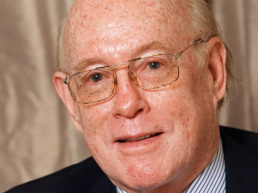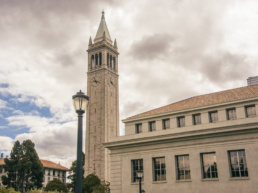The third episode of our podcast, Atlantic Talks, is now available. The guest this week is the historic figure of CDS-PP, and former Portuguese Vice-Prime-Minister, Paulo Portas.
He started as a Journalist, was the leader of the CDS-PP twice, and moved away from active politics in 2016, after being Minister of Defense in the Government led by Durão Barroso, and Minister of Foreign Affairs and Vice-Prime-Minister in the Government of Pedro Passos Coelho. Today, Paulo Portas is a Consultant for private companies, teaches at several universities around the world, and has a regular commentary space at TVI.
In a conversation with Journalist Filipe Santos Costa, Paulo Portas talks about the current state of affairs in american society and the US relationship with it’s tradicional allies.
“I would like to see an U.S. that has more capacity for an internal compromise between the two sides, the two parties – Republicans and Democrats –who hardly understand each other about anything nowadays.” – Paulo Portas.
The former ruler considers that the situation in which we live in did not begin in 2016, but rather is a characteristic of the American society, which balances between a more multilateral orientation and isolationism, and that in the future it will change again.
“I am very afraid of a world that becomes a collection of isolationisms, although I know that isolationism is one of the poles of American tradition, it was not born in 2016. Americans often have a tension between what is unilateral and multilateral, and they can move from one extreme to the other. That’s cyclical and will return to its place. But the cost of American unilateralism, to me, impresses me.” – Paulo Portas.
On the impact of this isolationism upon world order, Paulo Portas warns of how, and more importantly, who will occupy it, as seen with the most prominent role that China is playing, and claiming.
“In globalization there are no empty spaces. Those who withdraw see their place occupied by third parties. It is not coherent a strategy of containment from China that doesn’t pass through the Asian allies and China’s neighbors that are closer to the West.” – Paulo Portas.
The conversation also included the impact that digitization, and in particular social media, are having on the political spectrum, and how Europe is far from being immune to populist movements, both from the left and from the right.
“There is a tribalization and a very divisive record, which is very polarized by social media. It’s not because of social media per se, it’s because of the predominance of avant-garde social media that pushes for what’s radical, pushes for what’s conflicting, pushes for what’s insulting. No society that is the leader of the Western world can live so many years like this.” – Paulo Portas
To listen to this episode just select one of the following links or search it where you normally listen to your podcasts.
Related Posts
25 de March, 2025
Note of Condolence – Charles Buchanan (1934-2025)
24 de March, 2025
Applications Open: FLAD/Saab Visiting Professor at UMass Lowell 2026
Portuguese professors can apply to…
17 de March, 2025
FCT and FLAD sign new protocols with the University of California
The objective is to promote academic…


